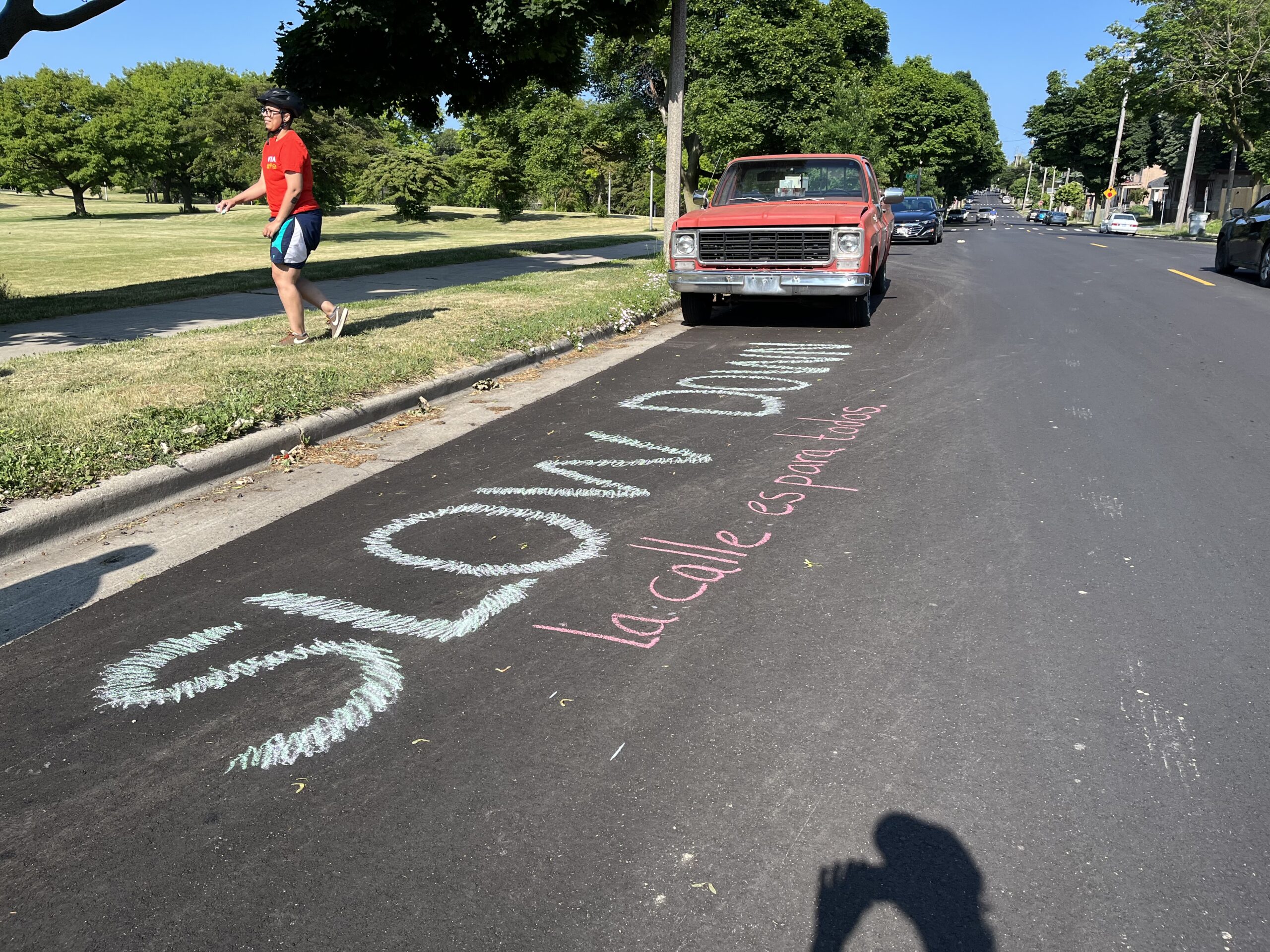Did you know that MilWALKee Walks has several copies of Right of Way and There Are No Accidents? Both books educate readers about the pedestrian safety crisis and how much of what we call “accidents” are in fact preventable. Our program intern summarizes Right of Way in this blog post. If you want to borrow either book, reach out to marybeth@wisconsinbikefed.org.
“There is something exceptional and new happening to the most vulnerable travelers in the United States,” states Angie Schmitt in the introduction to her book Right of Way (p. 2), and she is right. Milwaukee is not alone in facing rising pedestrian deaths; across the U.S., pedestrian deaths rose by 50% between 2009 and 2019 (p. 6). This trend is likely a result of many factors: infrastructure that is not designed for pedestrians, vehicles on the road becoming bigger and consequently more dangerous, a lack of enforcement of the rights of pedestrians. All of these contribute to a national public health crisis in the United States, at a time when even our most comparable peer countries are reducing traffic fatalities.
Right of Way, published in 2020, highlights the necessity of MilWALKee Walks’ work. The stories that open each chapter come from states as geographically diverse as Georgia, Indiana, and Oregon. The people in these stories are parents, children, friends, neighbors. They’re the kind of people that we see every day here in Milwaukee. They’re the stories of infants like Saa’mir Williams, killed on a Philadelphia road in 2013 along with his mother and two of his siblings, and grandparents like Ignacio Duarte-Rodriguez, killed in Phoenix on a road where the closest signaled crossing was almost a mile away. Schmitt’s structuring of her chapters this way, sharing stories from many different places that nevertheless echo one another, proves that this is bigger than any one city.
That said, national problems can still have local solutions. Chapter 6 opens with the story of Whitney Stump, who upon being ignored repeatedly by the city of Muncie, Indiana when he requested a crosswalk at an intersection near his home, simply painted one himself (p. 99). He’s not the only one to do so – Schmitt references several other individuals or small groups who take pedestrian safety in their community into their own hands, such as a group of grieving parents in New York City who launched the organization Families for Safe Streets (p. 163). And that work extends beyond the stories Schmitt tells. Here in Milwaukee, residents have been actively engaged in making change through joining Crosswalk Actions, participating in programs like Paint the Pavement and Active Streets, getting involved with organizations like the Coalition for Safe Driving MKE, creating plazas, organizing walk audits, and advocating for safer road designs.
This kind of local activism is powerful. Pedestrian deaths are a national epidemic, but at the same time, they’re a localized problem. Many problems that appear big and nationwide can be changed on local scales, and that change adds up. Researchers in St. Paul conducted an experiment by posting signs along roads showing both the current and record-high rates of pedestrians yielding to drivers. Following the posting of the signs, yielding rates went up from 44% to 72%. Whitney Stump and others quietly paint their own crosswalks, and pedestrian safety becomes a citywide conversation. MilWALKee Walks hosts a Crosswalk Action, and families learn about their rights as pedestrians while going to local events.
Right of Way links all these local stories and actions together to paint a bigger picture of pedestrian safety in the United States. Schmitt shows both the existence of a problem, and the work that individuals, families, and communities are doing to combat it. MilWALKee Walks is one piece of a larger movement, and it’s a movement that’s growing.
Want to read Right of Way? MilWALKee Walks has a lending library with several copies of Right of Way and Jesse Singer’s There Are No Accidents. Contact marybeth@wisconsinbikefed.org if you would like to borrow our copies.
Want to get more involved in pedestrian advocacy? Volunteer with MilWALKee Walks at a Crosswalk Action! Click here to signup or check out our events schedule.
